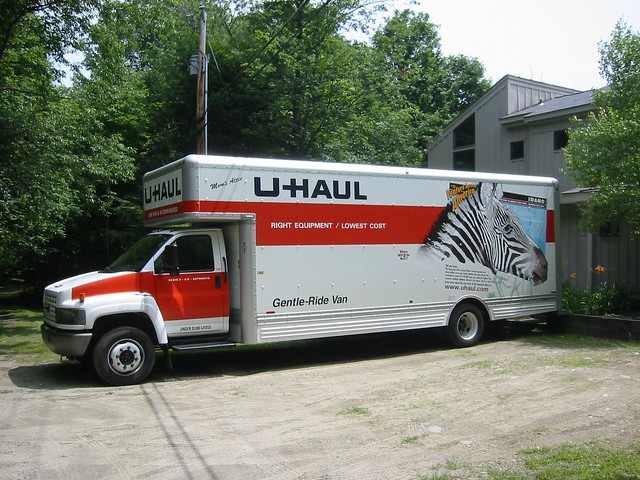The moving and storage industry is vital for transporting belongings from one location to another. U-Haul, with its iconic orange trucks, is widely known in this industry. However, it faces competition from other players.
In this article, we will explore the competitors challenging U-Haul’s dominance and delve into the world of the moving and storage industry.
Overview of U-Haul’s Dominance in the Moving Industry
Since its founding in 1945 by Leonard Shoen, U-Haul has become a household name across North America, dominating the moving industry. With an extensive network of rental locations, a diverse fleet of trucks and trailers, and strong brand recognition, U-Haul has established itself as a trusted leader.
U-Haul’s widespread presence with thousands of branches ensures convenient access to their services for customers nationwide. Their well-maintained fleet offers a range of vehicles suitable for any size or distance, providing customers with reliable transportation options.
The company’s strong brand recognition is built on decades of delivering quality service and customer satisfaction. Beyond truck rentals, U-Haul offers self-storage facilities, hitch installations, moving supplies, and optional add-on services like insurance coverage and roadside assistance.
In summary, U-Haul’s dominance in the moving industry can be attributed to its extensive rental network, diverse fleet options, strong brand reputation, and comprehensive range of services tailored to customer needs.
Competitors in the Moving and Storage Industry
Budget Truck Rental, established in 1998 as part of Budget Rent A Car System Inc., is a notable competitor to U-Haul. Leveraging its parent company’s customer base, Budget Truck Rental has gained market presence with a fleet of well-maintained trucks and nationwide rental locations.
However, U-Haul’s extensive network and brand recognition give it an edge in accessibility and customer trust.
Penske Truck Rental, founded in 1969, is also a strong contender in the moving industry. With a focus on reliable trucks and excellent customer service, Penske has attracted loyal customers. While U-Haul may have more locations and a larger fleet, Penske differentiates itself by offering newer trucks and emphasizing customer satisfaction.
Overall, the moving industry is highly competitive, with these competitors offering various strengths and weaknesses. Ultimately, customers choose based on their preferred priorities such as accessibility, reliability, or brand recognition.
Comparison of U-Haul with its Main Competitors
U-Haul, a dominant player in the moving and storage industry, faces competition from Budget Truck Rental and Penske Truck Rental. While these competitors have their own unique advantages, they still have ground to cover when it comes to matching U-Haul’s reach and reputation.
U-Haul’s vast network of rental locations across North America gives it an advantage in terms of accessibility for customers. Its strong brand recognition also instills trust in consumers, making them more likely to choose U-Haul over its competitors.
Additionally, U-Haul’s diverse range of services, including self-storage facilities and moving supplies, solidifies its position as a one-stop solution for all moving needs.
Budget Truck Rental leverages competitive pricing and the customer base of its parent company. Penske Truck Rental focuses on newer trucks and exceptional customer service. However, they still have work to do in matching U-Haul’s reach and reputation.
Emerging Competition and Potential Threats to U-Haul’s Market Share
New entrants in the moving industry, such as PODS (Portable On Demand Storage) and online platforms connecting customers with local movers, pose potential threats to U-Haul’s dominance. PODS offers convenient storage containers delivered directly to customers’ doorsteps, providing an alternative option for those who prefer not to rent a truck.
Online platforms streamline the booking process and offer competitive pricing options, diverting customers away from traditional DIY moves. To maintain market share, U-Haul must adapt by exploring innovative solutions and expanding its services beyond truck rentals.
Embracing innovation will ensure U-Haul remains a leader in the industry despite these emerging competitors.
Conclusion: The Future of Competition in the Moving Industry
[lyte id=’JIbGxXYtJgk’]




